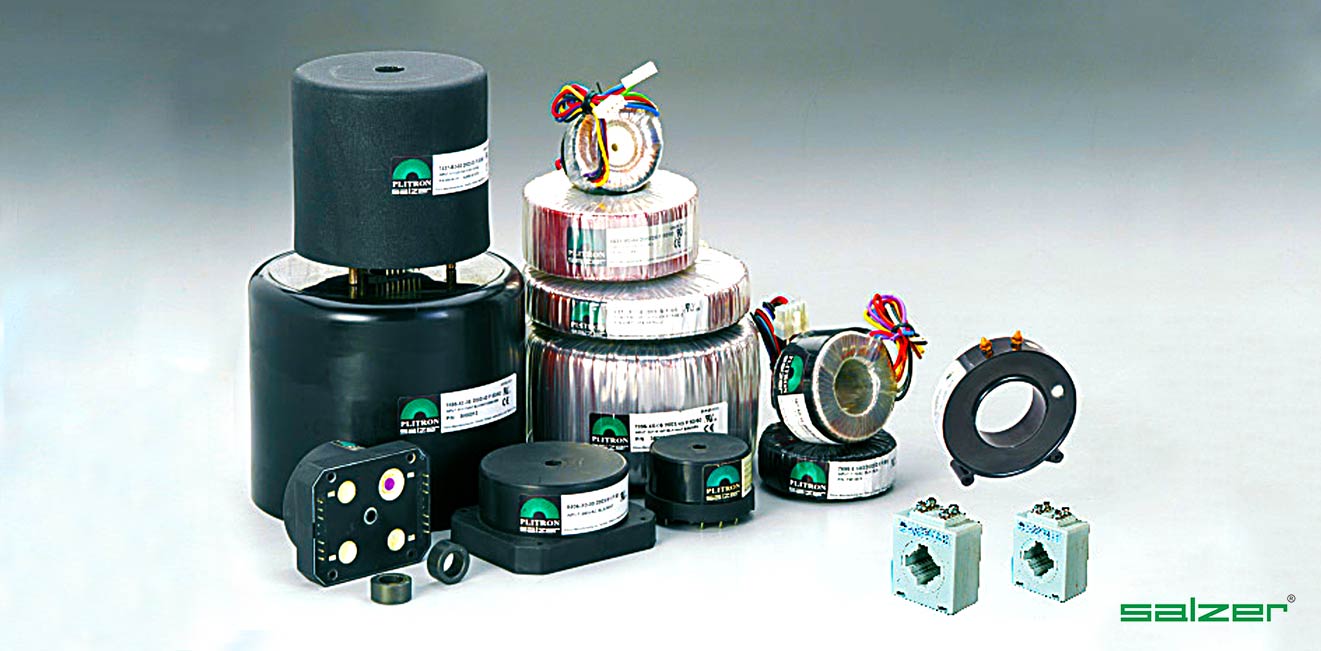Toroidal Transformers, CT's & Rogowski Coils
Introduction
Rogowski Technology of Current measurement With its over 20 years of experience in Toroidal Technology Salzer- Engineers have pioneered the design, development and manufacturing of Rogowski coils and we have been supplying the Rogowski Coils to various OEM’s worldwide.
Detail Decription
A Rogowski coil, named after the German Physisct Walter Rogowski, is an electrical device for measuring alternating current (AC) or high-speed current pulses. It consists of a evenly wound helical coil of wire with the lead from one end returning through the centre of the coil to the other end, so that both terminals are at the same end of the coil. The winding is done on a non-magnetic/non-metal former of constant cross sectional area. The whole assembly is then wrapped around the straight conductor whose current is to be measured. The speciality is there is no metal (iron) core.
Features
- Rogowski coils have been used for the detection and measurement of electric currents for decades. The voltage output is proportional to the rate of change of current. This voltage is integrated, thus producing an output proportional to the current.
- Even though Rogowski Coils are low power sensors, the protection system is immune to external electromagnetic fields.
- Rogowski Coil can replace CTs for protection, metering, and control purposes.
- Rogowski Coils are accurate, small, light, and easy to install. They do not saturate.
- Rogowski Coils provide superior differential protection for power transformers, substation bus bars, generators, and large motors.
- Rogowski Coils do not create hazards for personnel with open secondary, as Conventional current transformers.
Specifications
- Range :Frame 1- Upto 2000AMPS
- Range :Frame 2- Upto 4000AMPS
- Range :Frame 3- Upto 6400AMPS. Frame 3 is provided with Two Rogowski
Application
- Sudden short-circuit testing
- Monitoring arc furnaces
- Lightning test facility
- Monitoring weld quality
- Protection of slip-ring induction motors
- Electromagnetic launchers
- On-line insulation discharge monitoring
- Transient measurements.





